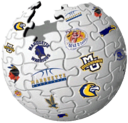Or... do traditional rebound figures tell the whole story?
Numbers Recap
Here is the breakdown for efficiency and the Four Factors against IPFW. In the IPFW preview that we did, I said that my prediction was for a 95% chance of Marquette victory, with the offense a little stagnant and the defense better than normal.
Turns out pretty close to expectations. The key here was that MU ended up with a season-best in defensive eFG%. Certainly, Marquette was sloppier with the ball than they should have been, and they didn't get to the line nearly as much as they usually do (avg FTR of 36.2%). However, the defense was pretty good, especially considering that IPFW was the best cupcake (queen of the pigs?) that MU has played so far.
Is it a bad thing to give up 12 offensive rebounds?
Here is another opportunity to dig into tempo-free stats a little bit more. In the Rosiak Blog recap, there's the following comments and quote from Buzz
On the flip side, the Golden Eagles allowed a similarly-sized team in the Mastodons to grab 12 offensive rebounds, and IPFW actually scored more points off turnovers -- 15 off 14 compared to 13 off 12 for MU.Setting aside the comment about Tennessee's offensive rebounds (which we'll get to in our TN preview), it probably wasn't that bad of a thing for IPFW to get 12 offensive rebounds. If anything, there should be a little concern because IPFW is a pretty poor offensive rebounding team, so MU should have actually held them to a lower percentage. However, Marquette dominated on offensive rebounding percentage (50% vs 27.9%). In addition, IPFW missed forty shots, so there were a lot of rebounds to grab! Despite the 12 offensive rebounds, this was the fourth best defensive performance on the defensive glass."Tennesee will probably have more than 12," said Williams when asked about the 12 offensive boards. "Probably double it."
How good is it to get 19 points and 18 rebounds?
Finally, the official story after the game was about Hayward's big game, especially on the glass. Rightly so, because frankly, those are big numbers, and it was the most rebounds since Amal McCaskill grabbed the same number in 1995. However, I'd like to note that those factors alone don't tell the whole story. In fact, Wesley quietly had a game that was almost as productive in five fewer minutes.
Lazar - ORtg (106.8) ; DRtg (67.1) ; Net points (8.3)
Wesley - ORtg (127.8) ; DRtg (57.6) ; Net points (7.9)
Wesley was more efficient both offensively and defensively. How so? Lazar missed 8 shots, had four turnovers, and only one assist. Meanwhile, on top of nine rebounds, Wesley had four assists, three blocks, two steals, and a single turnover (no - not making that joke).
I certainly don't want to take away from Lazar's rebound production. After all, tying a 13 year record is a big deal. It is definitely not a bad thing to get 18 rebounds. My point is that the whole story is somewhat different, and that net contributions can come in a variety of ways. I'd rather give credit to Wesley and Lazar, instead of just Lazar.

No comments:
Post a Comment